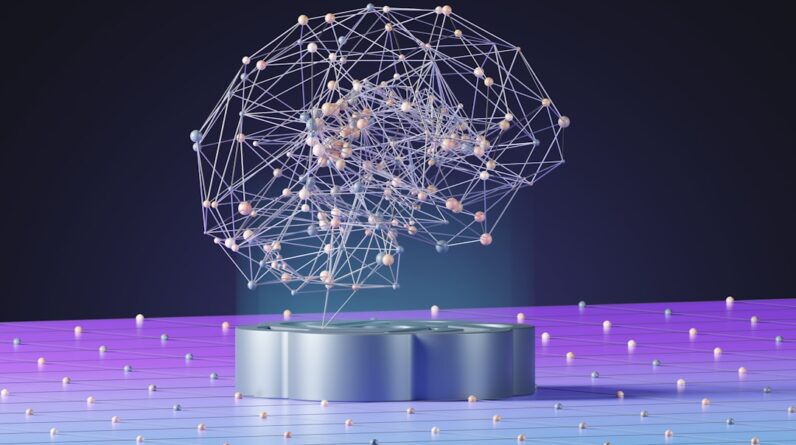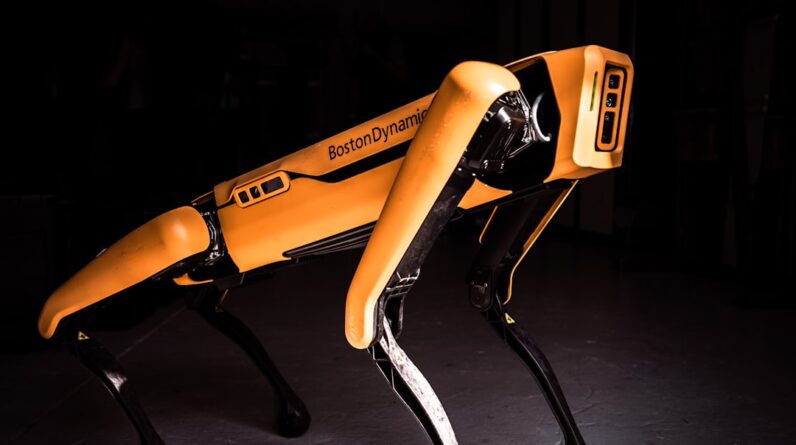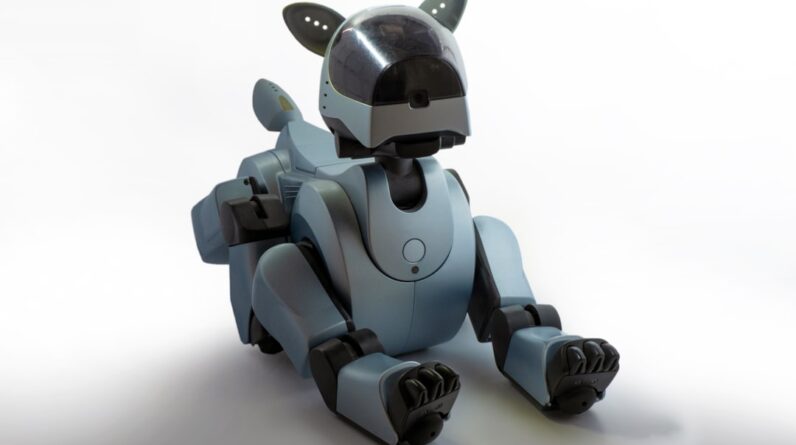Artificial Intelligence (AI) has emerged as one of the most transformative technologies of the 21st century. As you navigate through your daily life, you may not even realize how deeply integrated AI has become in various aspects of society. From the way you interact with your devices to the services you rely on, AI is quietly revolutionizing the world around you.
This technology, which enables machines to mimic human intelligence, is not just a futuristic concept; it is a reality that is reshaping industries and enhancing human capabilities. The journey of AI began decades ago, but recent advancements in machine learning, natural language processing, and data analytics have propelled it into the mainstream. You might find it fascinating that AI systems can now learn from vast amounts of data, adapt to new information, and even make decisions with minimal human intervention.
As you delve deeper into this topic, you will discover how AI is not only improving efficiency but also creating new opportunities and challenges that society must address.
Key Takeaways
- Artificial Intelligence (AI) is the simulation of human intelligence processes by machines, especially computer systems.
- AI is present in everyday life through virtual assistants like Siri and Alexa, and recommendation systems like Netflix and Spotify.
- In healthcare, AI is used for medical imaging, drug discovery, and personalized treatment plans, improving patient care and outcomes.
- Autonomous vehicles rely on AI for navigation, object recognition, and decision-making, paving the way for safer and more efficient transportation.
- Virtual assistants like chatbots and customer service AI are transforming the finance and banking industry, providing personalized services and improving efficiency.
Examples of AI in Everyday Life
AI-Powered Search Engines
When you use your smartphone to search for information or ask a question, AI algorithms are at work behind the scenes. These algorithms analyze your query, sift through vast databases, and provide you with relevant answers in a matter of seconds.
Personalized Recommendations
Another common example of AI in your everyday life is the recommendation systems used by streaming services and online retailers. When you log into your favorite platform, you are often greeted with personalized suggestions based on your previous interactions. This not only saves you time but also enhances your overall experience by introducing you to content or products that align with your preferences.
Enhancing Your Daily Experiences
As you explore these platforms, you may find yourself discovering new music, movies, or books that resonate with your tastes, all thanks to the power of AI. This seamless interaction exemplifies how AI enhances your daily experiences by making information more accessible and tailored to your needs.
AI in Healthcare

In the realm of healthcare, AI is making significant strides that could redefine patient care and medical research. Imagine walking into a clinic where AI-driven diagnostic tools assist doctors in identifying diseases more accurately and swiftly. These systems analyze medical images, lab results, and patient histories to provide insights that can lead to earlier interventions and better outcomes.
As a patient, this means receiving more precise diagnoses and personalized treatment plans tailored to your unique health profile. Moreover, AI is playing a crucial role in drug discovery and development. The traditional process of bringing a new drug to market can take years and cost billions of dollars.
However, AI algorithms can analyze vast datasets to identify potential drug candidates more efficiently. This not only accelerates the research process but also increases the likelihood of finding effective treatments for various conditions. As you consider the implications of AI in healthcare, it becomes clear that this technology has the potential to save lives and improve the quality of care you receive.
AI in Autonomous Vehicles
The automotive industry is undergoing a revolution driven by AI technology, particularly in the development of autonomous vehicles. Imagine a future where you can sit back and relax while your car navigates through traffic, makes decisions on the road, and ensures your safety without any input from you. This vision is becoming increasingly plausible as companies invest heavily in AI systems that enable vehicles to perceive their surroundings and respond accordingly.
Autonomous vehicles rely on a combination of sensors, cameras, and advanced algorithms to interpret data from their environment. As a passenger in such a vehicle, you would benefit from enhanced safety features that reduce the risk of accidents caused by human error. Additionally, these vehicles could optimize traffic flow and reduce congestion, leading to a more efficient transportation system overall.
The integration of AI into transportation not only promises convenience but also has the potential to reshape urban planning and reduce environmental impact.
AI in Virtual Assistants
Virtual assistants have become an integral part of many people’s lives, providing convenience and efficiency at your fingertips. When you ask your smart speaker for the weather forecast or set a reminder for an important task, you are engaging with an AI-powered assistant designed to understand and respond to your requests. These virtual companions utilize natural language processing to interpret your commands and deliver accurate information in real-time.
As you interact with virtual assistants like Siri, Alexa, or Google Assistant, you may notice how they learn from your preferences over time. They can adapt to your voice patterns and understand context better with each interaction, making them increasingly useful in managing your daily tasks. Whether it’s controlling smart home devices or providing updates on your calendar, these assistants are designed to enhance your productivity and simplify your life.
AI in Finance and Banking

The finance and banking sectors are also experiencing a significant transformation due to AI technology. As you manage your finances or make investment decisions, AI algorithms are working behind the scenes to analyze market trends and assess risks. These systems can process vast amounts of data at incredible speeds, allowing financial institutions to make informed decisions quickly.
For instance, when you apply for a loan or credit card, AI-driven credit scoring models evaluate your financial history and behavior to determine your eligibility. This not only streamlines the application process but also helps lenders make more accurate assessments of risk. Additionally, AI is being used to detect fraudulent activities by analyzing transaction patterns and flagging suspicious behavior in real-time.
As a consumer, this means greater security and efficiency in managing your financial transactions.
AI in Entertainment and Gaming
The entertainment industry has embraced AI technology in various ways, enhancing the way you consume content and engage with media. Streaming platforms utilize sophisticated algorithms to analyze your viewing habits and recommend shows or movies that align with your interests. This personalized approach not only keeps you engaged but also introduces you to new genres or creators that you might not have discovered otherwise.
In the gaming world, AI is revolutionizing player experiences by creating more immersive environments and intelligent non-player characters (NPCs). Imagine playing a game where NPCs adapt their behavior based on your actions, making each playthrough unique and challenging. This level of interactivity enhances your gaming experience and keeps you coming back for more.
As technology continues to evolve, the possibilities for AI in entertainment are boundless, promising even more engaging experiences in the future.
The Future of Artificial Intelligence
As you reflect on the various applications of artificial intelligence across different sectors, it becomes evident that this technology is poised to shape the future in profound ways. From healthcare advancements that improve patient outcomes to autonomous vehicles that redefine transportation safety, AI is already making significant contributions to society. However, as with any powerful tool, there are ethical considerations and challenges that must be addressed.
Looking ahead, it is crucial for society to navigate the complexities of AI responsibly. This includes ensuring transparency in algorithms, addressing biases in data sets, and safeguarding privacy as technology continues to evolve. As an individual living in this rapidly changing landscape, staying informed about these developments will empower you to engage with AI thoughtfully and advocate for its responsible use.
In conclusion, artificial intelligence holds immense potential to enhance our lives in countless ways. By embracing its capabilities while remaining vigilant about its implications, you can be part of a future where technology works harmoniously with humanity to create a better world for all.
A related article discussing the merging of quantum computing with artificial intelligence can be found here. This article delves into the potential implications and advancements that could arise from combining these two cutting-edge technologies.
FAQs
What is artificial intelligence (AI)?
Artificial intelligence (AI) refers to the simulation of human intelligence in machines that are programmed to think and act like humans. It involves the development of computer systems that can perform tasks that typically require human intelligence, such as visual perception, speech recognition, decision-making, and language translation.
What is a good example of artificial intelligence?
A good example of artificial intelligence is IBM’s Watson, a question-answering computer system that is capable of answering questions posed in natural language. Watson has been used in various fields, including healthcare, finance, and customer service, and has demonstrated the ability to understand and process large amounts of data to provide accurate and relevant answers to complex questions.
How does artificial intelligence work?
Artificial intelligence works by using algorithms and data to enable machines to learn from experience, adapt to new inputs, and perform human-like tasks. This is typically achieved through techniques such as machine learning, deep learning, and neural networks, which allow AI systems to analyze and interpret data, recognize patterns, and make decisions based on the information they receive.
What are some other examples of artificial intelligence?
Other examples of artificial intelligence include virtual personal assistants like Siri and Alexa, self-driving cars, facial recognition technology, and recommendation systems used by online platforms such as Netflix and Amazon. These AI applications demonstrate the ability of machines to understand and respond to human behavior and preferences, as well as to perform complex tasks autonomously.






